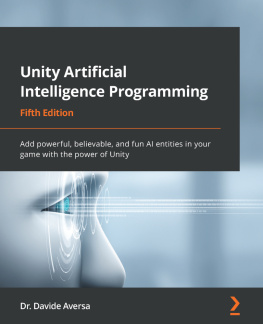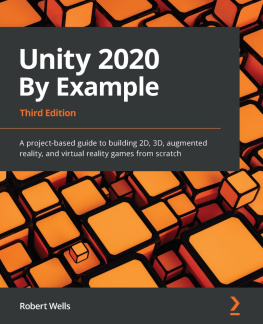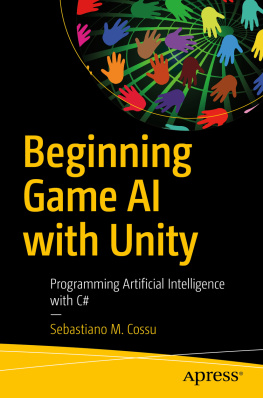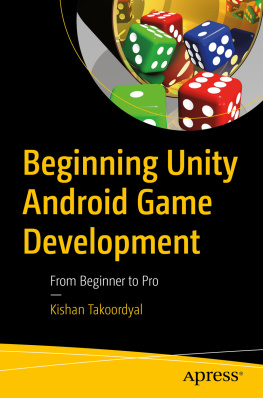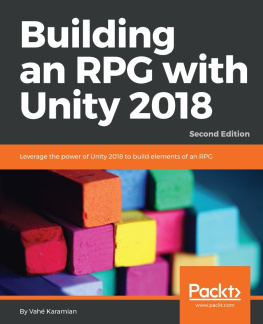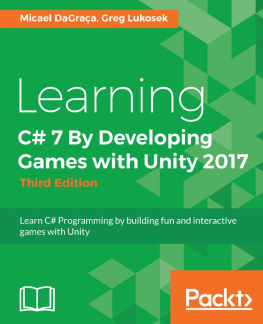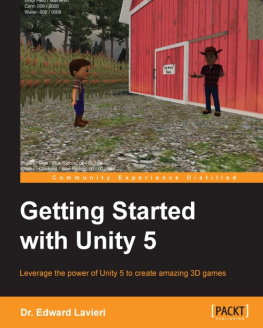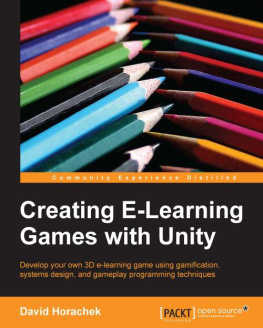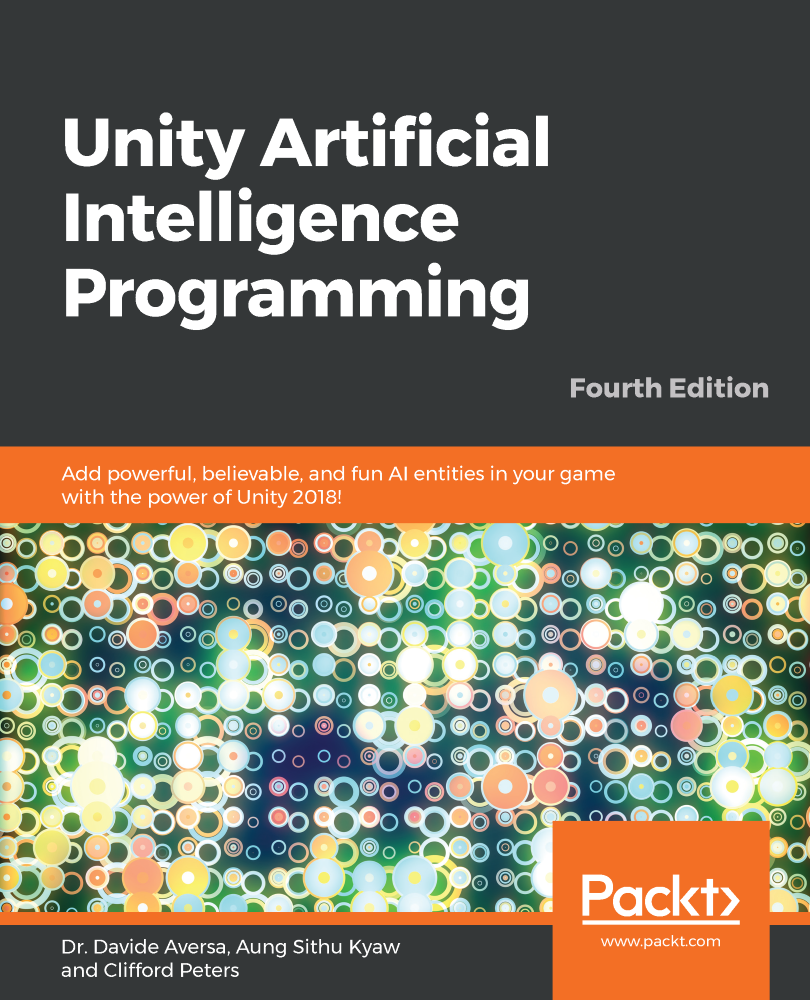Davide Aversa - Unity Artificial Intelligence Programming
Here you can read online Davide Aversa - Unity Artificial Intelligence Programming full text of the book (entire story) in english for free. Download pdf and epub, get meaning, cover and reviews about this ebook. year: 2018, publisher: Packt Publishing, genre: Home and family. Description of the work, (preface) as well as reviews are available. Best literature library LitArk.com created for fans of good reading and offers a wide selection of genres:
Romance novel
Science fiction
Adventure
Detective
Science
History
Home and family
Prose
Art
Politics
Computer
Non-fiction
Religion
Business
Children
Humor
Choose a favorite category and find really read worthwhile books. Enjoy immersion in the world of imagination, feel the emotions of the characters or learn something new for yourself, make an fascinating discovery.

- Book:Unity Artificial Intelligence Programming
- Author:
- Publisher:Packt Publishing
- Genre:
- Year:2018
- Rating:5 / 5
- Favourites:Add to favourites
- Your mark:
Unity Artificial Intelligence Programming: summary, description and annotation
We offer to read an annotation, description, summary or preface (depends on what the author of the book "Unity Artificial Intelligence Programming" wrote himself). If you haven't found the necessary information about the book — write in the comments, we will try to find it.
Learn and Implement game AI in Unity 2018 to build smart game environments and enemies with A*, Finite State Machines, Behavior Trees and NavMesh.
Key Features- Build richer games by learning the essential concepts in AI for games like Behavior Trees and Navigation Meshes
- Implement character behaviors and simulations using the Unity Machine Learning toolkit
- Explore the latest Unity 2018 features to make implementation of AI in your game easier
Developing Artificial Intelligence (AI) for game characters in Unity 2018 has never been easier. Unity provides game and app developers with a variety of tools to implement AI, from the basic techniques to cutting-edge machine learning-powered agents. Leveraging these tools via Unitys API or built-in features allows limitless possibilities when it comes to creating your games worlds and characters.
This fourth edition with Unity will help you break down AI into simple concepts to give you a fundamental understanding of the topic to build upon. Using a variety of examples, the book then takes those concepts and walks you through actual implementations designed to highlight key concepts and features related to game AI in Unity.
Further on, youll learn how to distinguish the state machine pattern and implement one of your own. This is followed by learning how to implement a basic sensory system for your AI agent and coupling it with a Finite State Machine (FSM).
Next, youll learn how to use Unitys built-in NavMesh feature and implement your own A* pathfinding system. Youll then learn how to implement simple ocks and crowd dynamics, which are key AI concepts in Unity. Moving on, youll learn how to implement a behavior tree through a game-focused example. Lastly, youll apply all the concepts in the book to build a popular game.
What you will learn- Create smarter game worlds and characters with C# programming
- Apply automated character movement using pathfinding and steering behaviors
- Implement non-player character decision-making algorithms using Behavior Trees and FSMs
- Build believable and highly efficient artificial flocks and crowds
- Create sensory systems for your AI with the most commonly used techniques
- Construct decision-making systems to make agents take different actions
- Explore the application of machine learning in Unity
This book is intended for Unity developers with a basic understanding of C# and the Unity editor. Whether youre looking to build your first game or are looking to expand your knowledge as a game programmer, you will find plenty of exciting information and examples of game AI in terms of concepts and implementation.
Table of Contents- Introduction to AI
- Finite State Machines
- Randomness and Probability
- Implementing Sensors
- Flocking
- Path Following and Steering Behaviors
- A* Pathfinding
- Navigation Mesh
- Behavior Trees
- Machine Learning
- Putting It All Together
Davide Aversa: author's other books
Who wrote Unity Artificial Intelligence Programming? Find out the surname, the name of the author of the book and a list of all author's works by series.

